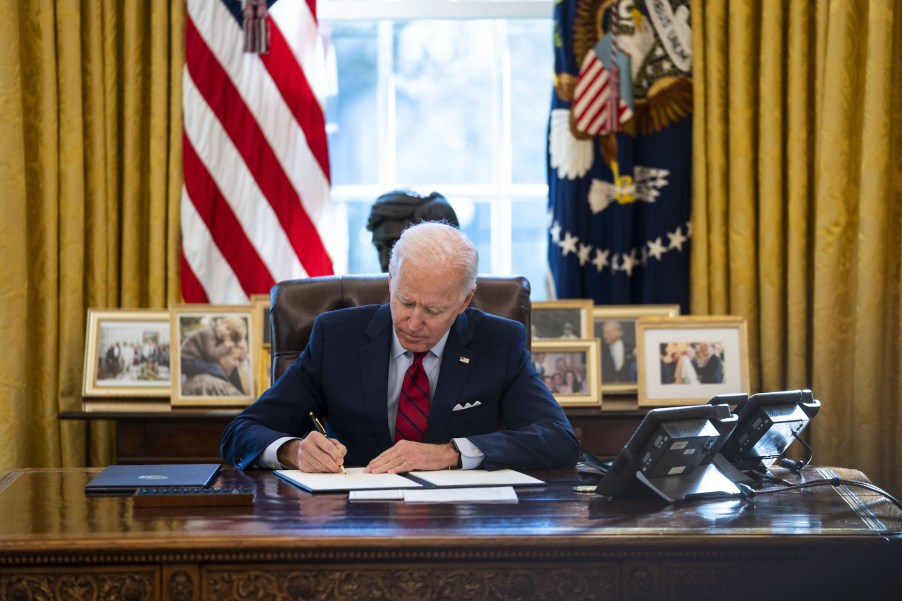
President Joe Biden Reportedly Overestimates the Amount of New Auto Industry Jobs
It’s been less than 30 days since President Joe Biden took office, and he’s already announced major plans for the U.S. auto industry. The most recent is to convert the U.S. government’s fleet of 650,000 vehicles into EVs. The expected result should be over 1 million new auto jobs.
However, according to the Associated Press via Autoblog, several key issues will likely hinder a net gain of 1 million jobs. As a result, the future of the auto industry may not be as bright as expected.
What was President Joe Biden’s original plan?
President Joe Biden originally announced this plan back in September 2020 during a speech. In short, there are three main components to this plan. The first is to convert the U.S. government’s fleet of 650,000 vehicles into EVs. More importantly, all of these EVs would have to be manufactured by American companies. The goal here is to promote the American electrical vehicle industry and open the pathway for citizens to make the switch to electric.
As you might imagine, a massive fleet of electric vehicles will require some serious charging infrastructure. To this end, President Joe Biden wants to install 500,000 brand-new charging stations across the country. Additionally, the President wants to modernize the highway systems to accommodate for this automotive shift.
As you might imagine, such a large-scale plan will require lots of factories and workers. President Joe Biden claims that union workers will manufacture these new EVs in the U.S. Additionally, there is a plan reportedly in place to help update current auto factories to produce electric vehicles. The expected outcome of this move is 1 million new jobs in the U.S. auto industry.
Why does the Associated Press Disagree?

While President Joe Biden’s plan seems to be of sound nature, the Associated Press seems to disagree. In a new report, AP fact check’s the President in saying that 1 million new jobs is likely an overestimation thanks to several key factors.
According to the AP, the first flaw in President Joe Biden’s plan comes from how cars are produced. Unlike internal combustion vehicles, EVs require 30 to 40 percent fewer parts. As a result, the AP claims that fewer workers will be needed to produce them. As a result, the creation of new jobs will also likely cause the loss of current positions. According to the AP, over 100,000 workers currently build gas-powered engines alone in the U.S.
Even if President Joe Biden can create a net gain of 1 million new auto jobs, there is another problem on the horizon. According to the AP, new vehicle sales in the U.S. are expected to remain flat around pre-pandemic levels for the next decade. As a result, we may not see a large wave of electric car buyers as expected.
Batteries for EVs aren’t typically built by union workers

One of the most appealing parts of President Joe Biden’s plan is to have these new EVs built by union workers in the U.S. However, the AP reports that carmakers currently pay workers who assemble batteries less than those who manufacture vehicles. According to the AP, a significant portion of the work assembling batteries is handled by other companies that pay less than what someone in the United Auto Workers union typically makes in a normal assembly plant.
As a result of these factors, the push to EVs may not be as beneficial in the short term as expected. However, it is clear that automakers and consumers alike are ready to embrace electric vehicles. Perhaps the introduction of this brand-new infrastructure will be a positive catalyst.


